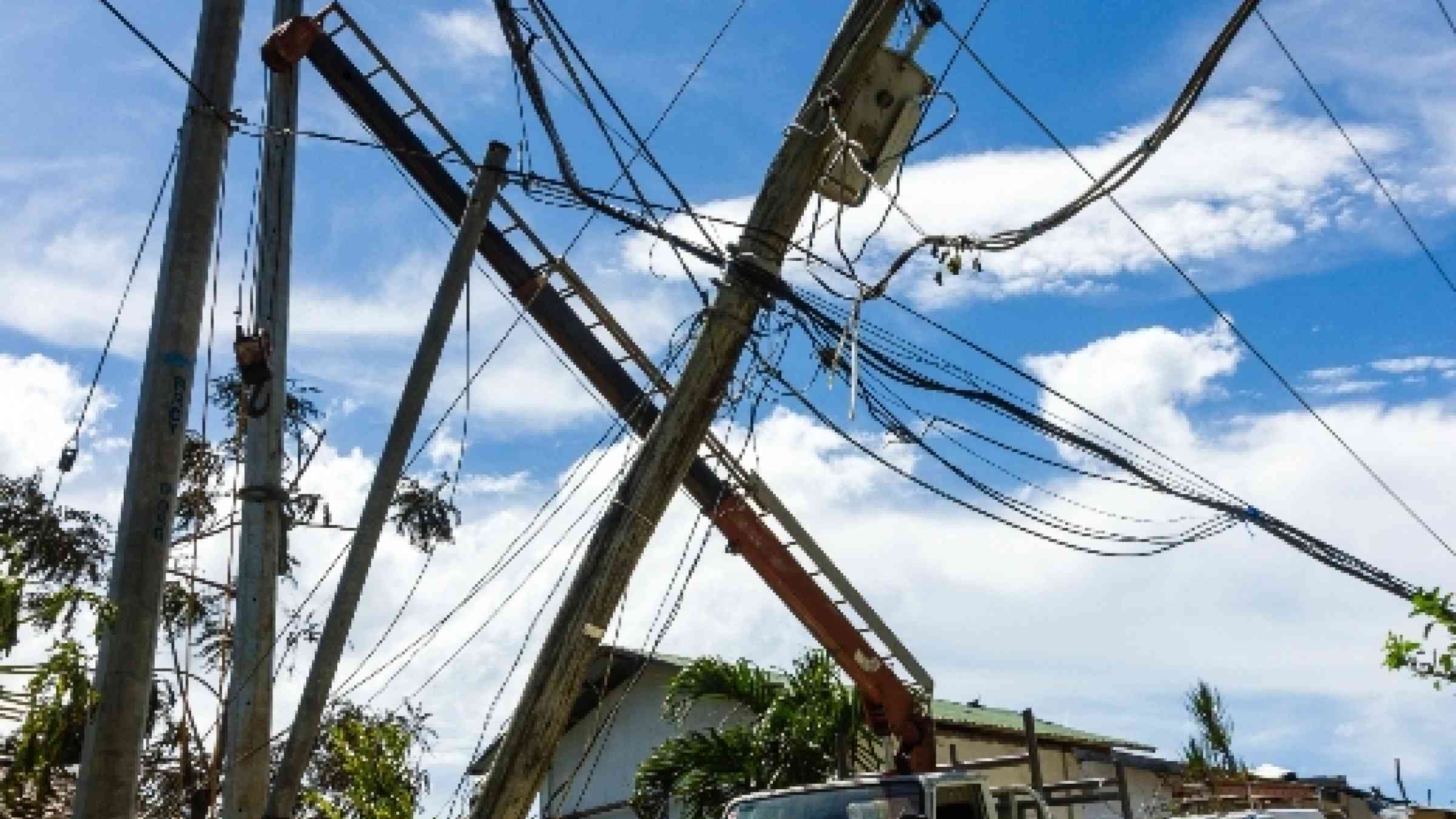Prioritizing Riskinformed Investments for Resilient Power Infrastructure
Most of the infrastructure that will be required by 2050 is yet to be built. Recent estimates suggest that the annual investment required to address the infrastructure deficit, achieve net-zero transitions, attain the fulfilment of SDGs, and strengthen resilience by 2050, amount to US$ 9.2 trillion, out of which US$ 2.76 trillion must be invested in Low-and Middle-Income countries (LMICs). Vulnerable infrastructure, particularly when exposed to the threats of climate change and natural hazards can lead to catastrophic consequences for people and economic activities.
Power is a critical infrastructure sector that is often severely impacted by extreme events like cyclones, volcanic eruptions, or floods, especially due to damage to “last mile” power transmission and distribution (T&D). In regions prone to extreme weather events, such as cyclones and floods, the power sector faces notable challenges in maintaining resilience such as Data management complexities, training limitations, and funding inadequacies. Data management presents a significant obstacle due to issues with integration and coordination among stakeholders. Strengthening the disaster preparedness capacity of power sector practitioners can help protect the grid against supply disruptions due to physical and climate-induced extreme weather, minimise the impact of supply disruptions, and restore electricity more quickly when outages occur.
In 2020, CDRI partnered with the Government of Odisha in India to conduct a technical study titled "Disaster Resilient Power Systems" for the state's power infrastructure, particularly the Transmission and Distribution (T&D) segment. The Collaborative study, conducted in partnership with the state's power utilities and disaster management authorities, pioneered a technical assessment of the disaster resilience of transmission and distribution assets along the entire 450 km of Odisha's coastline. The study employs an easy-to-adopt methodology that includes cyclone and flood zonation, exposure analysis, and vulnerability analysis. This process determines asset-level criticality based on importance and risk, culminating in a prioritisation matrix. Corresponding to this matrix, a cost-benefit analysis for transmission and distribution assets is conducted to ensure financial preparedness and adaptation in the face of extreme weather events.
In this backdrop, CDRI proposes to organise a side event at APMCDRR in collaboration with the National Disaster Management Authority, Government of India on prioritizing risk-informed investments for resilient power infrastructure in Asia Pacific. The proposed session will feature presentations and reflections on the CDRI Odisha power resilience study, as well as insights from the National Disaster Management Authority (NDMA), Government of India and other CDRI member countries in the Asia Pacific on their efforts to strengthen infrastructure resilience, sector through conducive policies, national projects, codes and standards, financing, and international cooperation. The session will highlight good practices that prioritise infrastructure resilience policies and action-based solutions to minimize power disruption due to extreme events.
Session Objectives:
The session will focus on three objectives:
a) To build the compelling political, economic, and social narrative for infrastructure resilience in the power sector through dissemination of the key findings of the technical study titled "Disaster Resilient Power Systems".
b) To share infrastructure resilience practices in the power sector with a focus on infrastructure risk assessment, regulatory frameworks, standards and codes, and finances.
c) To discuss various opportunities for enhancing infrastructure resilience through international cooperation at global, national and local level across various geographies.
Special Remarks: Mr Kamal Kishore, Special Representative of the UN Secretary-General (SRSG) for Disaster Risk Reduction and the Head of the United Nations Office for Disaster Risk Reduction (UNDRR). (TBC)
Opening Remarks: Dr. Krishna S. Vatsa, Member, National Disaster Management Authority (NDMA), Government of India
Context Setting and Moderator:
- Mr. Amit Prothi, Director General - Coalition for Disaster Resilient Infrastructure (CDRI)
- Principal Secretary, Department of Energy – Government of Odisha, India
- Ms. Vasiti Soko, Director – National Disaster Management Office, Government of Fiji
- Representatives from the Department of Energy, Republic of the Philippines
- Representatives from Power Utility / Disaster Management Authority –Government of Mauritius (TBC and subject to change)

Agenda
Online access
Details
Organized by
National Disaster Management Authority (NDMA), India Coalition for Disaster Resilient Infrastructure (CDRI)Contact
Shri Rajendra Singh, Member & HOD National Disaster Management Authority (NDMA), India email: [email protected]
